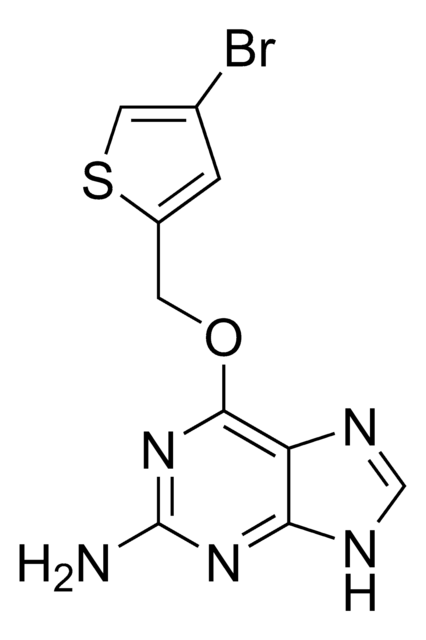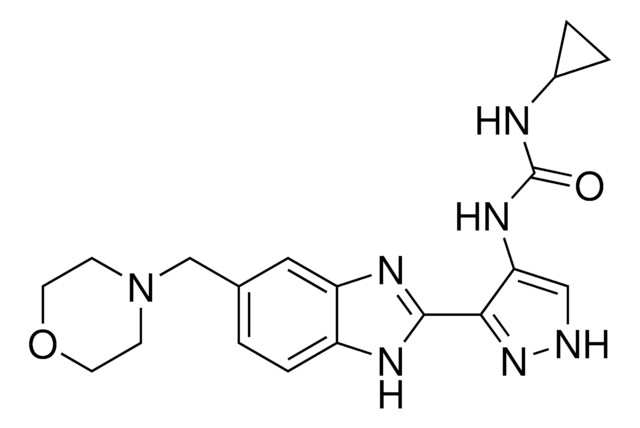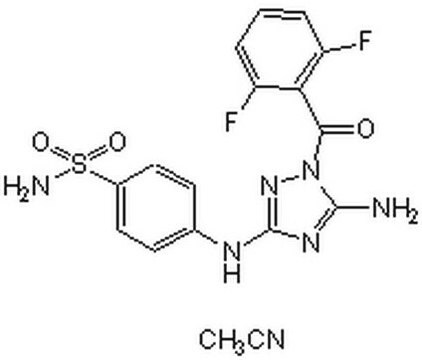SML1143
PTC-209
≥98% (HPLC)
Synonym(s):
N-(2,6-Dibromo-4-methoxyphenyl)-4-(2-methylimidazo[1,2-a]pyrimidin-3-yl)-2-thiazolamine
About This Item
Recommended Products
Assay
≥98% (HPLC)
form
powder
color
white to brown
solubility
DMSO: 20 mg/mL, clear
storage temp.
2-8°C
SMILES string
BrC1=CC(OC)=CC(Br)=C1NC2=NC(C3=C(C)N=C4N3C=CC=N4)=CS2
InChI
1S/C17H13Br2N5OS/c1-9-15(24-5-3-4-20-16(24)21-9)13-8-26-17(22-13)23-14-11(18)6-10(25-2)7-12(14)19/h3-8H,1-2H3,(H,22,23)
InChI key
XVOOCQSWCCRVDY-UHFFFAOYSA-N
Application
- the cell viability of canine osteosarcoma (OSA) cell lines
- lipidated microtubule-associated protein 1 light chain 3 (LC3B-II) and Sequestosome 1 (SQSTM1) protein levels in ovarian cancer (OvCa) cells
- cardiac reprogramming efficiency in mouse embryonic fibroblasts (MEF)
Biochem/physiol Actions
Features and Benefits
Storage Class Code
11 - Combustible Solids
WGK
WGK 3
Flash Point(F)
Not applicable
Flash Point(C)
Not applicable
Certificates of Analysis (COA)
Search for Certificates of Analysis (COA) by entering the products Lot/Batch Number. Lot and Batch Numbers can be found on a product’s label following the words ‘Lot’ or ‘Batch’.
Already Own This Product?
Find documentation for the products that you have recently purchased in the Document Library.
Our team of scientists has experience in all areas of research including Life Science, Material Science, Chemical Synthesis, Chromatography, Analytical and many others.
Contact Technical Service







